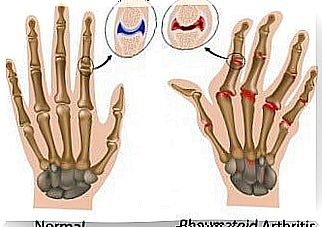Loratadine: What Is It For And What Are Its Contraindications?
Loratadine is an active H-1 antihistamine drug that is used to treat allergy symptoms and is taken by mouth.
Unlike other antihistamine medications, such as astemizole or terfenadine, loratadine does not produce sedation. The reason for this is its small penetration into the central nervous system and the fact that it has a small affinity to H-1 receptors in this part of the body. It is also not associated with torsades de pointes , which are ventricular tachycardias.
This antihistamine is often combined with another drug, pseudoephedrine, which is a decongestant, useful for colds and to reduce allergic symptoms.
In this sense, loratadine (also known as Claritine ) is indicated to alleviate the symptoms of chronic urticaria and other dermatological allergic conditions. In addition, it works for the treatment and control of the symptoms of allergic rhinitis such as sneezing, rhinorrhea and itching.
In turn, it helps to relieve allergic conjunctivitis and its symptoms such as: tearing and stinging of the eyes.
How are allergic symptoms triggered?

An allergy is an increased reaction of the body to particles or substances that are harmless to most proteins. The substances to which you are allergic are called an allergen and the symptoms are defined as “allergic reactions.”
When an allergen enters the body of a person allergic to it, the immune system, which are the body’s innate defenses, responds by producing many antibodies against that substance.
Antibodies are protein molecules that are responsible for fighting the foreign substance that has entered the body.
Successive exposure to the same allergen will cause that antibody to release chemical mediators that will cause the typical symptoms of an allergic reaction.
Among these symptoms we can find:
- Skin: redness, inflammation, itching, rash.
- In the eyes and in the ears : spikes, red eyes and tearing.
- In the respiratory tract : sneezing, coughing and itching in the throat.
- Digestive: skin lesions, respiratory and vomiting.
Mechanism of action: how does loratadine have an effect on the body?

As we have said, loratadine is a drug that interacts with histamine H1 receptors. Specifically, it competes with histamine for binding to these types of receptors.
It is a competitive antagonism that prevents histamine from binding to its receptor and blocks its effects on receptors in the digestive tract, uterus, great vessels, and bronchial muscles.
H1 blockers have a number of properties that they share with anticholinergics, antispasmodics, and gangliotonic and adrenergic blockers.
However, loratadine is practically devoid of anticholinergic effects and in vitro studies have shown that this drug has only a weak affinity for cholinergic and alpha-adrenergic receptors.
Contraindications to the use of loratadine
This medicine is contraindicated in people who have a known hypersensitivity to it. The low anticholinergic activity of H1 antihistamines can cause bronchial secretions to thicken.
In this way, acute asthma attacks can be aggravated. However, this anticholinergic activity does not preclude the use of antihistamines in asthmatic patients, particularly when drugs such as loratadine with a minimal anticholinergic component are used.

In addition, loratadine can cause lethargy and drowsiness in some patients. This is why it is essential to inform these types of patients about the danger generated by driving or using dangerous machinery if they are under treatment with this medicine.
On the other hand, it is important to bear in mind that in children under 2 years of age the safety and efficacy of this drug have not yet been established. Therefore, it should not be used in this population group.
Lactating women who are treated with loratadine should avoid taking it, as it is excreted, in part, in breast milk.
Loratadine is a widely used drug
Loratadine is a drug widely used to combat allergic symptoms. It owes its effectiveness to the ability to interact with histamine H1 receptors, avoiding the binding of histamine with them.
It has the advantage of not producing sedation in patients who consume it. However, it is contraindicated in a number of situations due to the complications it can cause.
Consult with your doctor or pharmacist any questions you have about treatment with loratadine and do not hesitate to share with them any effect you feel after treatment with it.









